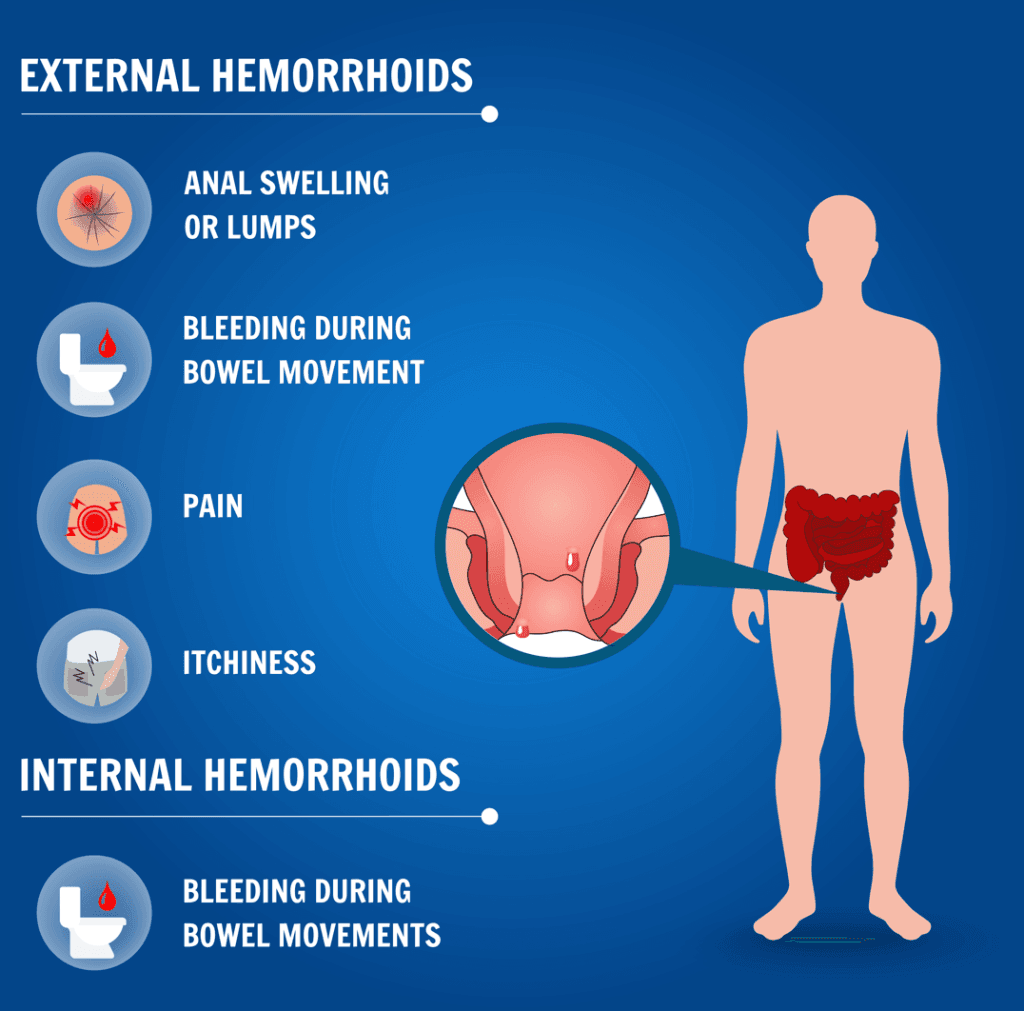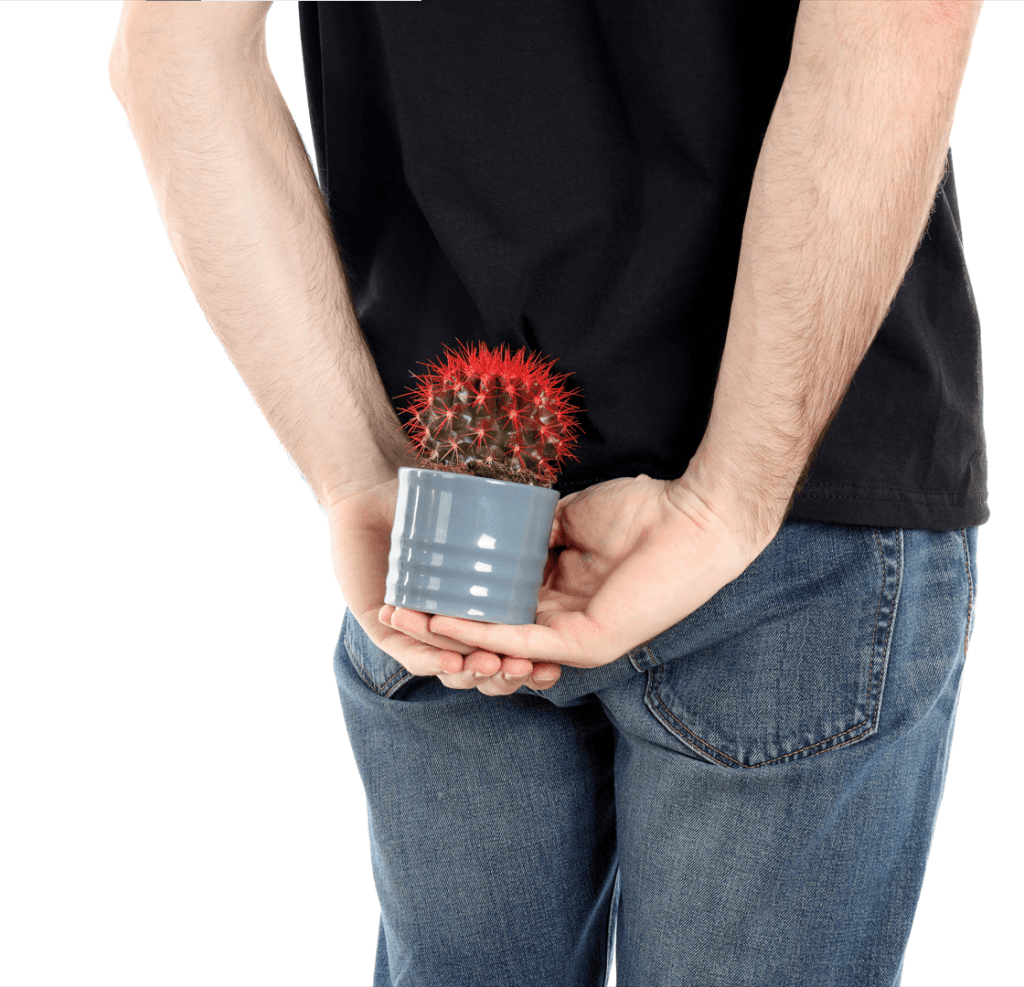Did you know that approximately 75% of people will experience hemorrhoids at some point in their lives? What’s often overlooked is the connection between holiday stress and hemorrhoids.
You’re likely familiar with the hustle and bustle that comes with holidays—the endless to-do lists, the family gatherings, and the pressure to make everything perfect. These stressors, combined with the tendency to indulge in rich foods, can lead to digestive disturbances that increase your risk of developing hemorrhoids.
As you navigate the festive season, understanding the link between your stress levels and your digestive health is crucial.
Now, consider the steps you can take to minimize this risk and why it may be important to keep an eye on those often-ignored symptoms that could signal the need for intervention.
Holiday Stress And Hemorrhoids – Highlights
- Increased stress during the holiday season can exacerbate digestive issues and trigger hemorrhoid flare-ups.
- Stress affects the regularity of bowel movements, which is crucial in preventing or aggravating hemorrhoids.
- Regular exercise promotes healthy digestion and regular bowel movements, reducing the risk of hemorrhoids.
- Managing stress through relaxation techniques like meditation, yoga, and deep breathing exercises can relieve stress-related stomach cramps and diarrhea.

Understanding Hemorrhoids
To effectively manage the discomfort associated with hemorrhoids, it’s crucial to first understand that these are swollen veins in your lower rectum and anus, similar to varicose veins. Hemorrhoids are a common ailment, with many adults experiencing them at some point in their lives.
They can manifest as either external or internal hemorrhoids, each with distinct symptoms. Internal hemorrhoids are located inside the rectum and are typically painless, while external hemorrhoids occur under the skin around the anus and can cause discomfort or itching.
It’s important to note that while stress does not directly cause hemorrhoids, it can indirectly impact your digestive system, potentially leading to behaviors that might exacerbate the condition, such as poor dietary choices or irregular bowel habits.
However, stress and hemorrhoids are linked in the sense that the emotional toll of dealing with persistent symptoms can affect your outlook and quality of life.
If you’re experiencing symptoms of hemorrhoids, such as itching or discomfort in the anal area, don’t hesitate to seek medical advice. A healthcare professional can provide a proper diagnosis and guide you through effective treatment options.
Remember, you’re not alone in this struggle, and support is available to help you navigate this uncomfortable condition.
Stress-Induced Symptoms
Stress-related digestive issues, such as constipation or diarrhea, can exacerbate existing hemorrhoids or contribute to their development. When you’re under stress, your body produces stress hormones, which can disrupt your digestive system.
This disruption often leads to symptoms that not only affect your emotional and physical health but also may increase the risk of developing or worsening hemorrhoids.
Here are four stress-induced symptoms that can impact hemorrhoids:
- ConstipationStress hormones can slow down your digestive system, leading to constipation. Prolonged constipation is a known risk factor for the development of hemorrhoids.
- DiarrheaAlternatively, stress can cause your digestive system to speed up, resulting in stomach cramps and diarrhea. Frequent diarrhea can irritate and inflame hemorrhoids.
- Irregular Bowel MovementsStress affects the regularity of your bowel movements. Keeping them steady is crucial in preventing the onset or aggravation of hemorrhoids.
- Anxiety and TensionStressful situations can increase muscle tension and anxiety, which may contribute to straining during bowel movements, thereby exacerbating hemorrhoids.
In light of these connections, it’s important to manage your stress effectively. Employing stress management techniques can help mitigate these stress-induced symptoms, safeguarding your digestive health and reducing the risk of hemorrhoids.
Holiday Stress Triggers
During the holiday season, heightened demands and expectations often lead to increased stress, which can exacerbate digestive issues and trigger hemorrhoid flare-ups.
The stress response can tighten your sphincter muscle, putting undue pressure on your rectum and aggravating hemorrhoids. Stressful thoughts may lead to poor food choices, resulting in chronic constipation—a primary factor in the development of hemorrhoids.
To keep hemorrhoids at bay, seek ways to manage holiday stress. Exercise and physical activity are excellent stress relievers and can help maintain digestive health. Engaging in regular physical activity can make you feel good, reduce stress, and prevent the constipation that often leads to hemorrhoid problems.
Additionally, consider integrating stress-reduction techniques such as meditation, which instills a sense of calm and can help divert your mind from stressful triggers. Meditation can improve your stress response, allowing you to handle holiday pressures with grace.

Prevention and Management
Acknowledging the role of stress in exacerbating hemorrhoid symptoms, it’s equally important to focus on proactive strategies for prevention and management.
Your emotional well-being can significantly impact your physical response to stress, including the fight-or-flight response that may contribute to digestive issues like constipation or diarrhea—both of which can lead to hemorrhoids.
To prevent hemorrhoids and maintain your health during the holidays, consider these key steps:
- Maintain A Balanced Dietwith fiber-rich foods to support healthy digestion and prevent constipation.
- Stay Hydratedby drinking plenty of water, which helps to soften stools and further avoid constipation.
- Incorporate Regular Exerciseinto your routine, which promotes healthy digestion and regular bowel movements, mitigating the risk of hemorrhoids.
- Manage Stressthrough relaxation techniques such as meditation, yoga, and deep breathing exercises. These practices can help relieve stress, which may otherwise trigger stomach cramps and diarrhea.
Seeking Medical Attention
If you experience persistent or worsening symptoms of hemorrhoids, it’s crucial to seek medical attention to rule out more serious conditions. Hemorrhoids can be uncomfortable and impact your daily life, and stress can lead to an exacerbation of these symptoms.
When home remedies fail to provide relief, or if you notice excessive bleeding, severe pain, or a protrusion that does not retract, professional healthcare guidance is necessary.
The emotional toll of dealing with hemorrhoids goes beyond physical discomfort. It can affect your emotions—and, in turn, your outlook on life. If you’re feeling overwhelmed, seeking medical attention can provide not only physical remedies but also support for your mental well-being.
Professionals emphasize the importance of addressing symptoms promptly, especially if you have a history of colorectal cancer or other digestive disorders. Additionally, changes in bowel habits or unexplained weight loss should prompt immediate consultation with a healthcare provider.
Final Note From Dr. Rajarshi Mitra
Managing holiday stress is crucial for preventing hemorrhoids. You should prioritize a balanced diet, hydration, and stress reduction techniques. If you’re experiencing persistent symptoms, don’t hesitate to consult a healthcare professional.
Remember, your well-being is essential, and taking proactive steps can help maintain your digestive health during the festive season. Stay informed and take action to ensure a happier, healthier holiday period.



















